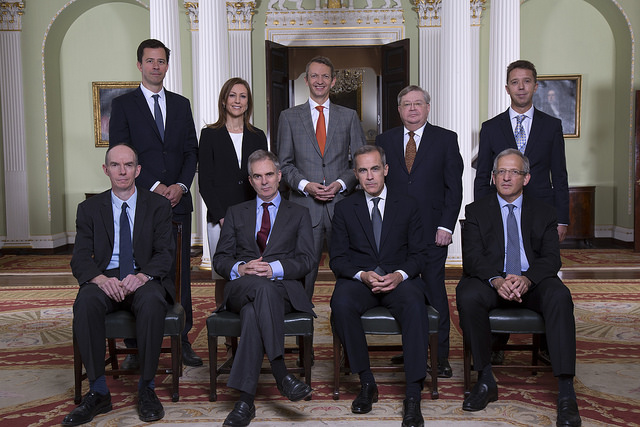The Bank of England's decided we're all feeling confident enough in our spending that it's time for them to step in with a higher interest rate. They've raised it to 0.75%, which is 0.25% higher than it was before (and higher than it's been since 2009).
What it means: When a central bank sets an interest rate, they've got to consider both making people want to spend enough money to keep business booming, and making sure prices don't rise too fast.
Now, the Monetary Policy Committee (the group with the Bank who decide these things) is thinking for the first time in several years that they might need to prompt people to spend less, not more. We've got a lot of people in jobs, and the public sector pay cap has just been lifted - so, they say, we may be seeing people across the public and private sector asking for wage increases. If people's wages go up, they'll want to spend more. If more money is chasing the same amount of goods, then prices go up - which gets the Bank into trouble, because they're supposed to keep inflation down. So what do you do? Raise interest rates, giving people an incentive to save money rather than spend (because they'll get a bigger reward from their bank for doing so).
Of course, not everyone thinks this rate rise was a good idea. For one thing, Brexit is on its way (in case you hadn't heard), and people say it's a bad idea to make borrowing money more expensive at a time when we want to encourage as many people as possible to keep investing in Britain.
Plus, some economists doubt that high employment means workers will be asking for more wages: income levels are very low and many people don't have much bargaining power in their jobs to ask for more.




